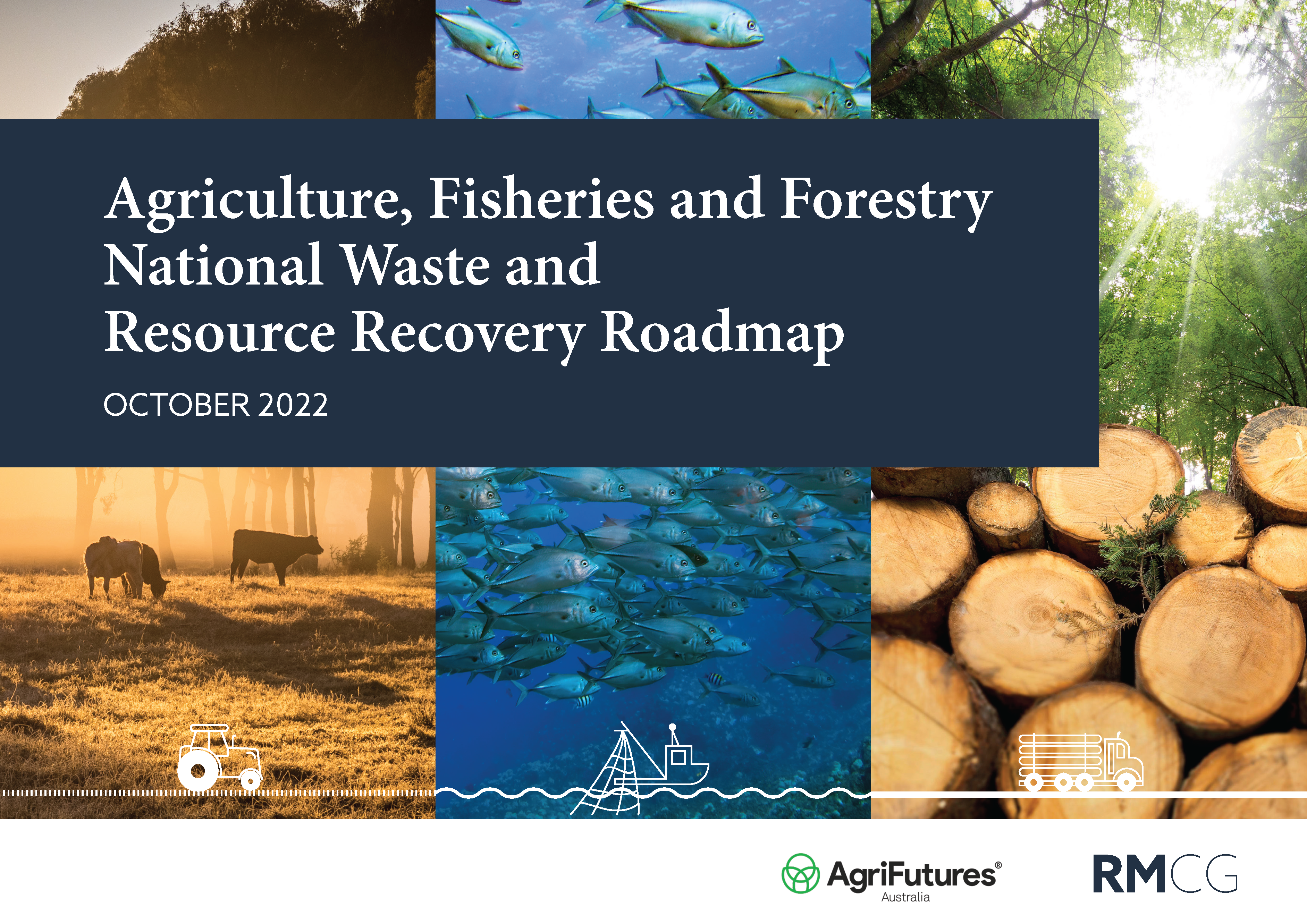The aim of this roadmap is to guide the future management of waste in the agriculture, fisheries and forestry sector applying the principles of a circular economy and the waste hierarchy.
This roadmap is for industry leaders, including Research and Development Corporations, industry representative bodies and policy makers in state and federal government. The roadmap will ensure the agriculture, fisheries and forestry sector is well-equipped to tackle waste issues sustainably, and that waste management initiatives are aligned with national and state approaches and supported by industry and the community.
The roadmap will ultimately assist individual sectors within agriculture, fisheries and forestry to take action – helping them identify what needs to be done, who needs to be involved and how they do it.
This roadmap is for the Australian agriculture, fisheries and forestry sector with a view to 2030. It has been developed with and for industry. It is about identifying solutions within industry that are pragmatic and realistic. To establish these priorities, we need a shared understanding of drivers and barriers among primary industry, waste and government sectors. The roadmap has facilitated this process by connecting the right people, creating partnerships and establishing a common language and platform.
The roadmap provides a clear pathway for how industries can deal with waste issues applying the principles of a circular economy and the waste hierarchy; highlights the barriers to implementation of improved waste management practices; and identifies the support that is required for each industry at a regional level considering specific sector needs, different waste streams and regional variances.
The national waste roadmap is about industry being on the front foot and leading the way in management of waste and working towards a circular economy. It presents a cross-sectoral approach and is complementary to activities already being undertaken by individual Research and Development Corporations, state and federal governments and the National Farmers’ Federation.





